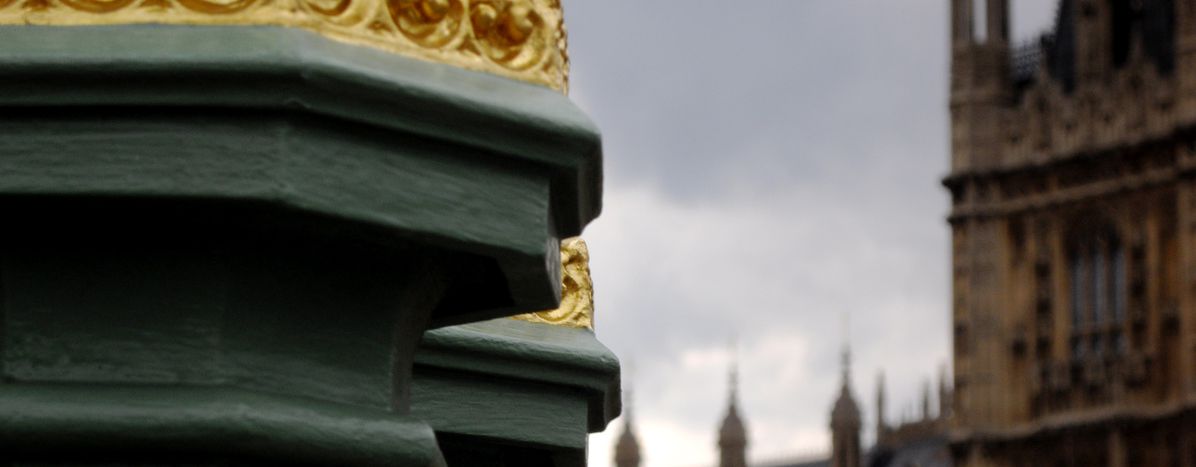
After the Westminster attacks - another day in London
Published on
London police have named Khalid Masood as the man who killed four people and injured 40 in an attack outside the British Parliament yesterday. 24 hours later and the city is trying continuing with life as normal - a sign of typical British defiance, or fatigue at a growing number of similar incidents in Europe?
Yesterday at around 2:40pm, London found itself the victim of a terror attack.
It started as it always does. A trickle, at first - people on Twitter reporting an increase in police activity near Westminster, others claiming to hear noises like gunshots. Photos begin to emerge; blurry at first, taken on phone cameras by inexpert hands, giving way to professionals armed with DSLRs. A barrage of information, some of it conflicting, eventually forming a terrible, and terribly familiar, narrative.
"We were in a meeting when it happened," says Georgia Sanders, a 26-year-old editor who works near Tottenham Court Road. "When I got back to my desk a colleague had sent an email round with a news link. My initial reaction, word for word, was: 'Shit.'"
Alex Fargier, a French journalism student at London Metropolitan University, was in the middle of class when the news broke. "When they started saying the police were treating the incident as terrorist related, I got the sense that 'it' had arrived in London - even if it was just one person and not a massive coordinated attack. This was going to get massive coverage as the first 'major' terrorist incident in London since the rise of ISIS."
Paris, Brussels, Nice, Berlin, Ankara and now London - not the kind of fraternity anyone wanted The Big Smoke to join. But there's a difference, this time - while mainland Europe has become sadly accustomed to these sorts of attacks in recent years, across the Channel the British have been spared. The last major terrorist attack on British soil was on 7 July 2005, when suicide bombings killed 52 people and injured over 700.
Viral Shah remembers the events 11 years ago vividly. He says the fear was far greater then than it is now, "given how recent 9/11 was and the UK's involvement in the wars in Iraq and Afghanistan."
Now, as in 2005, London is making every effort to "Keep Calm and Carry On." Both houses of Parliament sat as scheduled today. Messages of hope and defiance were written on boards in Underground stations across the city. But interviewing people today the most striking thing is the sense of fatigue, as years of body counts on 24 hour news channels have hardened us to this kind of trauma. Viral's first words on hearing about the attack were; "For fuck's sake, not again." Agata Zielińska, a PhD student, was keeping one eye on her Twitter but still managed to read the article she had started earlier in the day.
Kacper Słolina, a freelance filmmaker, believes that part of the reaction is the nature of the crime: "The difference between this attack and everything that happened in Paris, Nice or Berlin is that what happened yesterday in London, happens all the time everywhere. People get stabbed in big cities, cars run over pedestrians. It's awful but it happens. Of course this was a targeted attack, but in the end the biggest difference with what happened yesterday was the location. Only a couple of weeks ago, a young guy got shot not far from where I live, and it hardly got on the news. Before that, another young man got stabbed, and it got even less coverage."
"If this attack had been on a larger scale, coordinated and aimed predominantly at the public, I think there would be a greater sense of fear," says Alex.
However, Georgia feels that the more subdued reaction today is due not to desensitisation but to defiance: "It's awful that we're so prepared for it because we're so used to this sort of thing happening, but at the same time it makes us stronger. We aren't blind to the agony and the tragedy; it powers that stiff upper lip, and we carry on as a form of protest. It's our way of saying, 'Fuck you, we won't be bullied.' It's not 'business as usual' in the sense that we don't care."
This attack will do little to help the tensions already felt by many foreign nationals of all faiths in the UK, exacerbated by last summer's Brexit referendum. But Kacper, who's a Polish national, says he doesn't feel any less safe after yesterday. "London has such a mix of people of all cultures, and so many different people that I never really felt in danger here."
"Someone was playing an electronic piano on the train," says Alex. "Right now I can't help feeling it's just another day in London."



